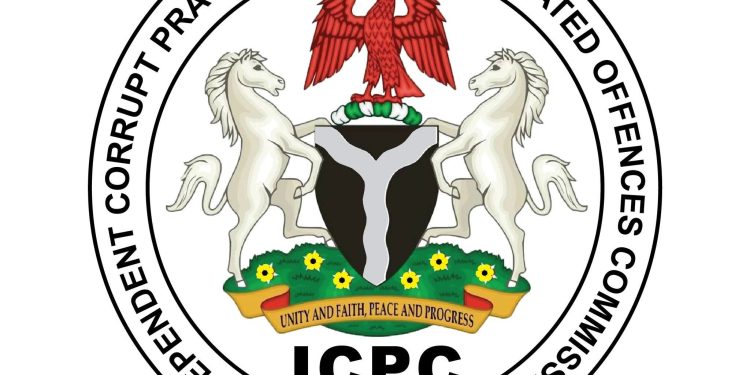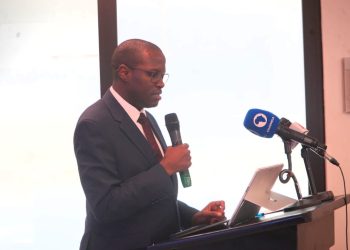By Nkechi Eze
The Independent Corrupt Practices and Other Related Offences Commission (ICPC) has deepened its collaboration with the Rule of Law and Anti-Corruption Programme (RoLAC) to strengthen the data management and analytical capacity of its officers through a targeted training designed to improve efficiency, accountability, and performance measurement within the Commission.
In an official statement signed by the Director of Public Enlightenment, Demola Bakare, the two-day capacity-building workshop, funded by the European Union, was held in Abuja and focused on enhancing the implementation of the Commission’s Strategic Action Plan (SAP), Key Performance Indicators (KPIs), and institutional data collection and reporting systems.
Declaring the workshop open, the ICPC Chairman, Dr. Musa Adamu Aliyu, SAN represented by the Director of Planning, Research, and Statistics, Mr. Oche A. Godwin, stressed the centrality of data in modern governance and institutional performance. He described data as the foundation of informed decision-making, effective policy formulation, and sustainable accountability.
According to him, “The ICPC, being a lead institution in promoting integrity and combating corruption, must possess the capacity to collect, manage, analyze, and evaluate data effectively. This capacity is not merely a technical requirement but a strategic imperative for fulfilling the Commission’s mandate.”
Dr. Aliyu explained that the training was specifically designed to equip ICPC personnel with modern tools and methodologies for improving operational efficiency, transparency, and performance tracking. He added that strengthening data literacy within the Commission will enable officers to more accurately monitor investigations, evaluate preventive initiatives, and report institutional progress through reliable monitoring and evaluation frameworks.
During the first technical session, Mr. Oche A. Godwin delivered a paper on the ICPC Strategic Action Plan (2024–2028), highlighting the importance of planning, risk assessment, resource optimization, and adaptability in achieving the Commission’s long-term objectives. He emphasized that the true value of any plan lies in its execution, noting that “effective planning must remain flexible, bridging both short-term goals and long-term strategic outcomes.”
The second technical session featured a presentation by Mr. Hilary Zira on Practicalizing the Annual Work Plan, where he guided participants on how to align departmental activities with the Commission’s broader Strategic Action Plan. He underscored that proper synchronization of work plans ensures that every departmental initiative contributes to institutional goals in measurable ways.
A hands-on segment of the workshop allowed participants to engage directly with data entry, KPI measurement, and standardized reporting templates. The practical exercises were aimed at translating theoretical concepts into concrete data management practices that enhance consistency and reliability across the Commission’s operations.
Speaking during the closing session, the Component Lead of RoLAC, Dr. Emmanuel Uche, commended the ICPC for its commitment to institutional strengthening and evidence-based management. He described proper documentation and data collection as indispensable tools for accountability, performance evaluation, and organizational learning.
According to Dr. Uche, “Institutions that document effectively are institutions that learn, evolve, and improve. Data is not just about numbers; it is about understanding impact and ensuring accountability to the people and the system we serve.”
The workshop marks another milestone in the ICPC’s ongoing reforms to modernize its internal systems, foster integrity-driven administration, and promote the use of empirical evidence in combating corruption and improving public sector governance.
















